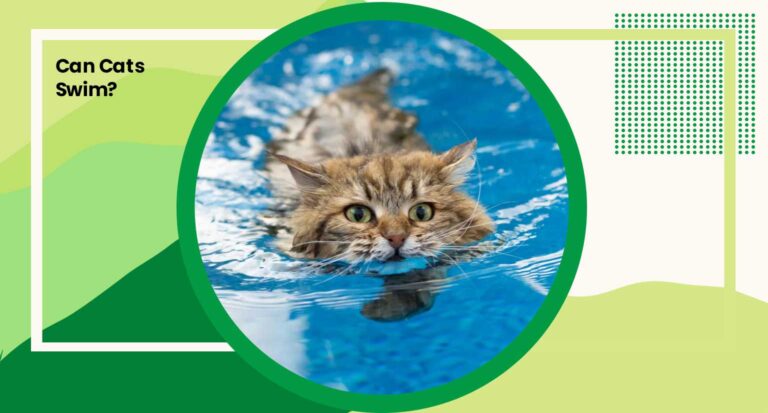Can Cats Understand English?
Have you ever wondered if your feline companion can truly comprehend the words you speak in English? It’s a question that’s crossed the minds of countless cat owners. Cats are remarkable creatures, known for their keen senses and mysterious behaviors.
In this article, we’ll delve into the fascinating world of feline cognition and explore the question: Can cats understand English? Let’s embark on this intriguing journey to unravel the secrets of your cat’s mind.
Are cats fluent in English?
Absolutely, let’s delve a bit deeper into how cats perceive and respond to human language:
Limited language comprehension
Cats don’t have the cognitive capacity to understand human language as a person would. Their brains process information differently, and they lack the complex linguistic abilities of humans. They don’t inherently understand words, sentences, or grammatical structures.
Contextual cues
Cats are incredibly perceptive about their environment. They might learn to associate specific sounds or words with certain activities. For instance, they may recognize the sound of a can opener as being linked to their food, or they might associate the word “play” with engaging in a game.
Body language and intonation
Cats are sensitive to the nuances of human communication beyond words. They respond not only to what is said but also to how it’s said. The tone, pitch, and rhythm of speech can convey emotions and intentions. They might respond more to the way a phrase is spoken rather than the phrase itself.
Reinforcement and training
Through positive reinforcement and consistent training, cats can learn commands or behaviors associated with certain words or sounds. This is more about conditioning and repetitive reinforcement rather than true language comprehension.
Differences
Just like people, cats have different personalities and levels of receptiveness to learning. Some cats might seem more attuned to human sounds or words, while others might not show much response.
Cats cannot understand English or any other language in a linguistic sense, they are intelligent animals capable of learning and responding to certain sounds, tones, and patterns based on their experiences and associations.
Their communication relies more on non-verbal cues and instinctual responses rather than language comprehension.
Do Cats Understand When You Talk to Them?
When we engage in conversations with our cats, it may not be the words themselves that they grasp, but rather the tone and intonation of our voices.
Cats are highly attuned to the emotions behind our words. When you speak to your cat in a soothing and gentle tone, they often perceive it as a sign of affection and reassurance.
Familiarity with Your Voice
Cats are known to recognize the voices of their human companions. They become familiar with the sound of your voice over time, associating it with your presence, care, and attention.
So, while they may not comprehend the words, the sound of your voice can bring comfort and a sense of security to your feline friend.
Context Matters
Context plays a crucial role in whether a cat can understand your communication. For instance, if you call your cat during mealtime, they may associate the sound of their name with the prospect of food.
Likewise, if you say “no” in response to their unwanted behavior, they might connect the word with a negative consequence.
Body Language and Visual Cues
Cats are highly observant animals. They pay close attention to your body language, facial expressions, and gestures. When you speak to them, they might not focus on the words, but rather on your non-verbal cues.
For example, when you extend your hand for a pet or offer a treat, they understand your intent through these actions.
Repetition and Association
Repetition can help cats associate certain words with actions or outcomes. If you consistently use a specific word when interacting with your cat, they may start to connect it with a particular activity. This is why “treat” or “playtime” may lead to an immediate reaction from your feline friend.
Cats may not comprehend English in the way humans do, they can certainly understand the emotions and intentions behind your words.
Their ability to pick up on tone, context, and visual cues makes them more perceptive to your communication than you might think.
Can Cats Learn to Speak English?
As much as we adore our feline companions, it’s important to set realistic expectations when it comes to their language abilities.
While cats are incredibly intelligent and communicative in their own way, learning to speak English, or any human language for that matter, is beyond their capabilities. Here’s why:
Anatomical Limitations
Cats lack the physical attributes necessary for human speech. Unlike humans, they don’t have vocal cords and articulatory muscles designed for forming complex sounds and words.
While they can produce a range of vocalizations, such as meows, purrs, and hisses, these are limited in complexity and are primarily used for expressing basic needs and emotions.
Lack of Cognitive Capacity
Cats are indeed clever creatures, but their cognitive capacity is geared more toward survival and navigation in the feline world.
They don’t possess the cognitive abilities required for comprehending and producing human language. The structure and complexity of human languages are well beyond the scope of their understanding.
Limited Language Learning Ability
Cats can learn to recognize and respond to a handful of English words or commands, but this doesn’t constitute learning to “speak” English.
Their learning is more about associating specific words with actions or outcomes. For example, they can learn that the word “food” means mealtime or “toy” signifies playtime.
Power of Non-Verbal Communication
While cats may not speak English, they are masters of non-verbal communication. They use body language, vocalizations, and facial expressions to convey their needs and emotions effectively.
Understanding your cat’s non-verbal cues and responding appropriately is crucial for a strong human-feline bond.
Respecting Your Cat’s Unique Abilities
It’s essential to appreciate and respect your cat’s unique abilities and instincts. They may not speak English, but they excel in their own ways, whether it’s hunting, grooming, or showing affection.
Learning to understand and interpret their forms of communication can lead to a deeper and more rewarding relationship.
Your cat may not become fluent in English, they have their own remarkable ways of communicating with you. Instead of focusing on teaching them human language, embrace and appreciate the rich and unique communication your cat offers.
Your cat’s distinctive forms of expression and interaction are part of what makes them a cherished member of your family.
Frequently asked questions (FAQs)
1. Can Cats Understand English Words?
Cats have the ability to recognize and respond to some English words, particularly if they are frequently used in their presence. However, their understanding is more about associating words with actions or outcomes rather than comprehending the language as a whole.
2. How Do Cats React to Their Names?
Cats can learn to recognize and respond to their names when consistently used by their owners. They associate the sound of their name with your presence and often respond with attention or curiosity when called.
3. What English Words Can Cats Learn?
Cats can learn a variety of English words related to their daily routines and interactions, such as “food,” “play,” “treat,” and basic commands like “sit” or “come.” The extent of their vocabulary largely depends on your teaching efforts and their individual receptiveness.
4. Do Cats Understand the Emotions Behind Words?
Cats are perceptive to the emotions and intentions behind your words, even if they don’t understand the language itself. They pay close attention to your tone, body language, and context to gauge your feelings, whether it’s affection, comfort, or a reprimand.
5. Can Cats Speak English or Mimic Words?
Cats cannot speak English in the same way humans do due to their anatomical limitations. While they produce various vocalizations, they are primarily used for expressing basic needs and emotions. Cats do not have the capacity to mimic the complexity of human speech.


